School of Public Finance and Taxation Holds Book Launch & Seminar: Dual Circulation, A New Development Pattern
On June 26, the new book launch and seminar: Double Circulation, A New Development Pattern, jointly sponsored by the School of Public Finance and Taxation, China Translation and Publishing House (CTPH) of China Publishing Corp., and China Academy of New Supply-side Economics, were held in the third lecture Hall of Boxue Building. President Fu Zhifeng, attended the seminar and gave a speech. CUEB leaders from School of Public Finance and Taxation also attended the seminar, including Dean Li Hongxia, Party Secretary Liu Xuewei, Vice Deans Wang Jingda and He Hui, and Deputy Party Secretary Liu Yumei. Xu Lei, Executive Vice President of China Academy of New Supply-side Economics, presided over the seminar.
Fu Zhifeng expressed that Professor Jia Kang (President of China Academy of New Supply-side Economics and Director of Chinese Academy of Fiscal Sciences) is an excellent alumnus of School of Public Finance and Taxation. The rapid development of the School of Public Finance and Taxation in recent years cannot be separated from the strong support of Prof. Jia. I wish the launch and seminar will be successful, and all experts will continue to support the development of CUEB.
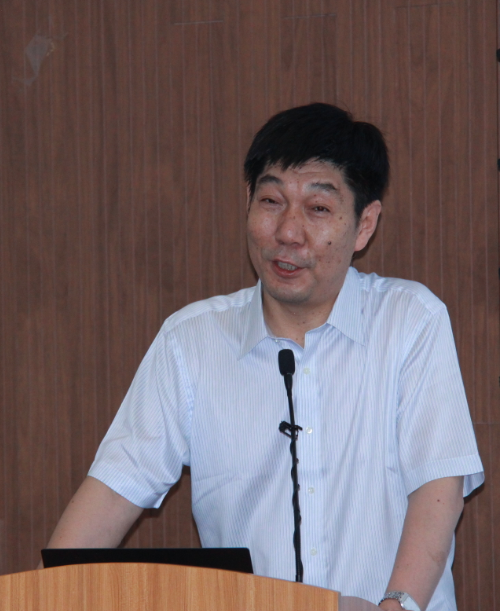
Li Yan, a member of the Party Group of China Publishing Corp. and the General Manager of China Publishing and Media Holdings Co., Ltd., showed that the book focuses on the practical results of industrial economic development and answers hot and difficult issues that people are concerned about. Also, it has high social value. He expressed congratulations to Prof. Jia and wish this seminar a big success.
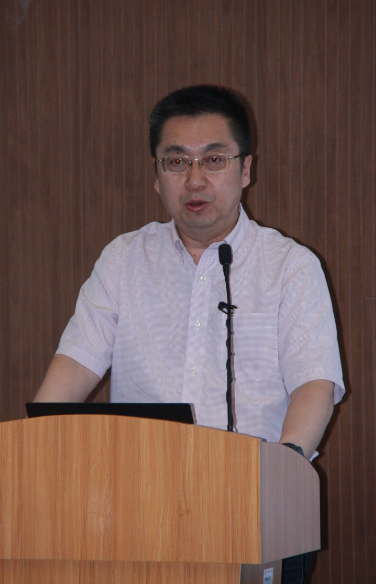
Qiao Weibing, Executive Director (namely, President) and Chief Editor of China Translation & Publishing House Co. Ltd. commented on Professor Jia Kang and his new book in his speaking. He said that Jia has a deep insight into China’s policy as he has conducted research on economic theory, macroeconomy as well as finance and taxation for a long time. His new book also weighs heavily in explaining the meanings of domestic and international circulations by summarizing their history and theoretical logic.
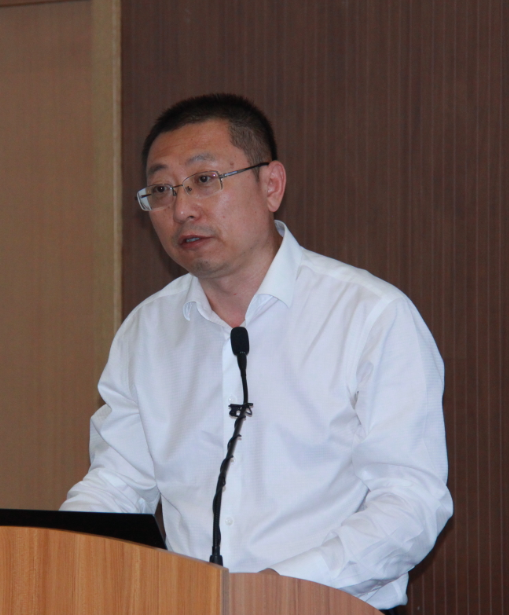
Jia Kang, together with Fu Zhifeng, Li Yan and Qiao Weibing, unveiled the book New Development Paradigm of Dual Circulation.
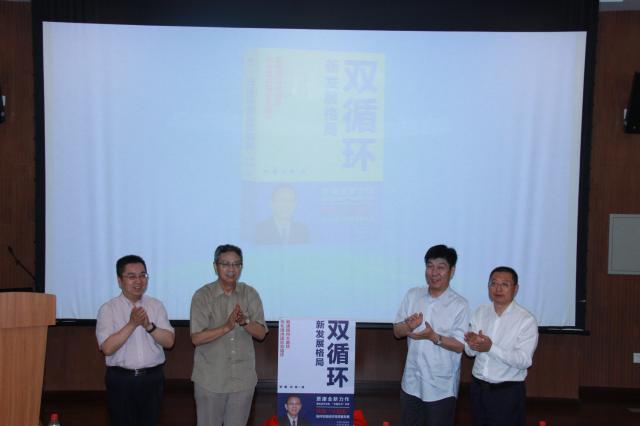
In keynote speech, Jia Kang introduced his purpose of writing this book. He mentioned that constructing the new development paradigm of “dual circulation” is a major strategic deployment aiming at promoting high-quality development in China’s reform and opening up. It is a strategic choice of reshaping China’s new advantage in international cooperation and competition, and an inherent part of exerting the strength of China as a mega economy. “Setting domestic circulation as the mainstay” is consistent with the over-repeated principle of “pursuing progress while ensuring stability and expanding domestic demand”. The proposition of the former aims to optimize allocation of relevant policies on dual circulation based on previous practices. In addition, it is a scientific choice to shape dual circulation by focusing on expanding domestic demand in consumption and investment during policy implementation under the backdrop of the operation of China’s macro-economy.
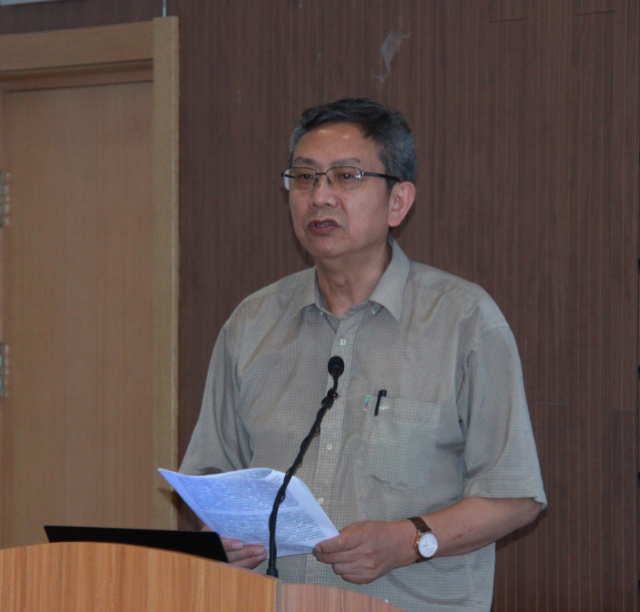
After the keynote speech, experts shared their opinions on this topic. Wei Jianing, former inspector and researcher of Development Research Center of the State Council’s Macroeconomic Research Department, said that emphasis on domestic circulation aims at promoting both domestic and international ones. We should be open and innovative because openness is essential for development and for recovery after the COVID-19 pandemic. Zhou Tianyong is the Director of China Strategy & Policy Research Center, Dongbei University of Finance & Economics and former Vice-President of International Institute for Strategic Studies, Party School of the Central Committee of C.P.C (National Academy of Governance). He gave a speech entitled Distribution-Consumption: Key to Domestic Circulation and proposed China to optimize the distribution of residents’ income, referring to domestic circulation. By doing so, we can further unified market reforms of land, residence and other factors in both urban and rural areas, rendering farmers property income and enlarging expenditure space. Huang Jianhui, President of China Minsheng Bank Research Institute and Chief Economist of China Academy of New Supply-side Economics, suggested that we can promote the new paradigm by setting “four new changes”, that is, more marketable factors, more popular digital lifestyle, richer wellbeing and more integrated globe, as engines. For Zhang Monan, Chief Researcher of America and Europe Research Institute, China Center for International Economic Exchanges, China should put greater strength to data regulation in both concept and idea in the future, optimize competitive policy act of digital platforms and put more emphases on concerted regulation. Guo Qingwang, former President of Renmin University of China’s School of Finance, said that dual circulation cannot be separated from household consumption in private sectors. As household expenditure increases, we should focus on its relation to equitable income distribution and on fiscal taxation policy’s improvement. Jin Hainian, Deputy Secretary General of China New Supply-side Economists 50 Forum, thought that emphasis on domestic circulation does not equal close-door policy. We should pay attention to the role of international circulation in all cases and make corresponding responses according to current stage in history. Yao Dongxu is the Director of Office of Research in CUEB, Professor and Doctoral Supervisor. He mentioned that trade helps to form relevant market in China because it not only extends outwards, but also influences other industries. Meanwhile, trade brings foreign capital inflow, thus offering more resources to help China gain greater competitiveness.
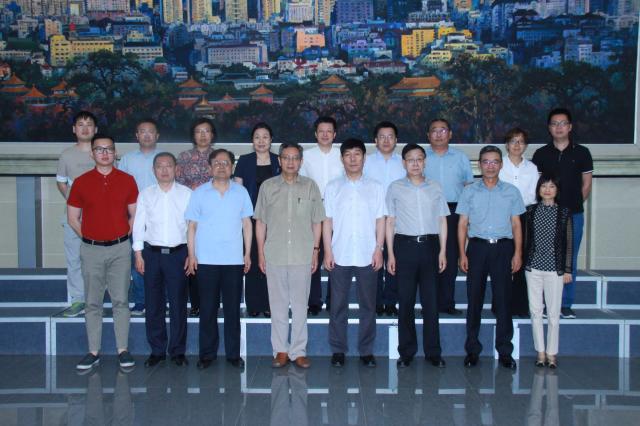
More than 10 news media including China Economic Information Network, Yicai, China Economic Times, Sohu, The Economic Observer as well as CUEB faculties and students from School of Public Finance and Taxation joined in the book launching activity.
